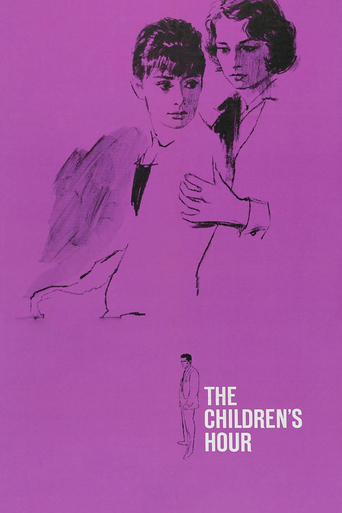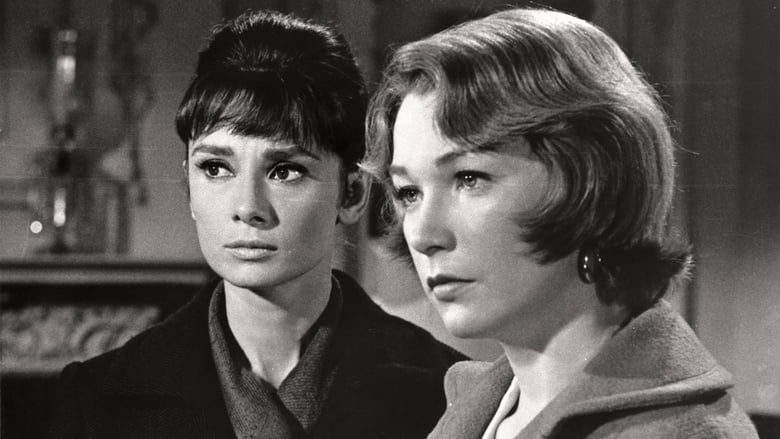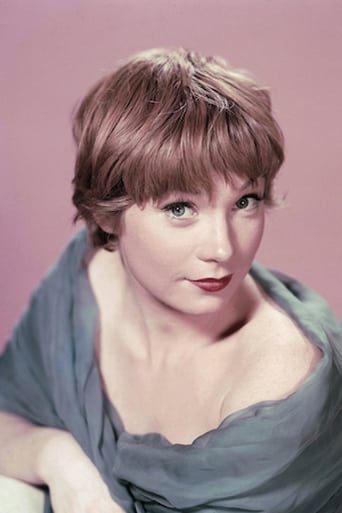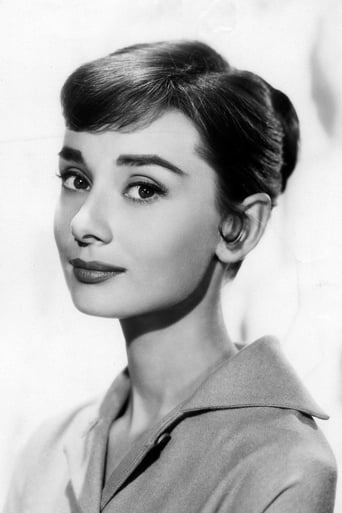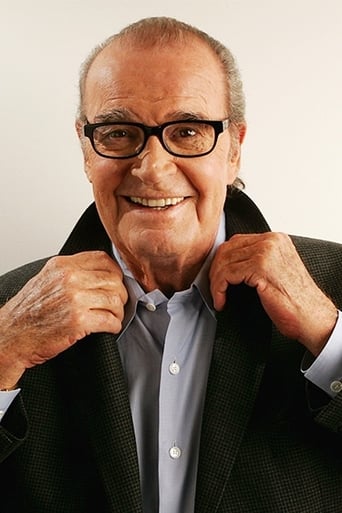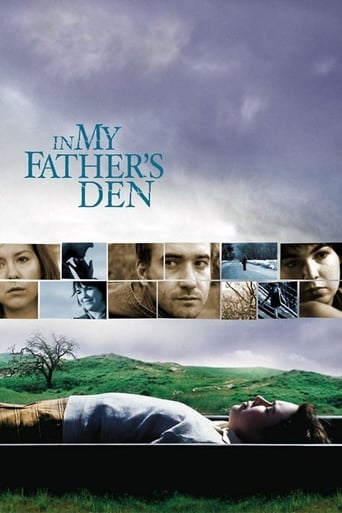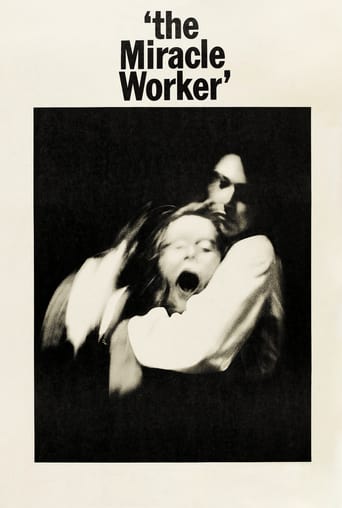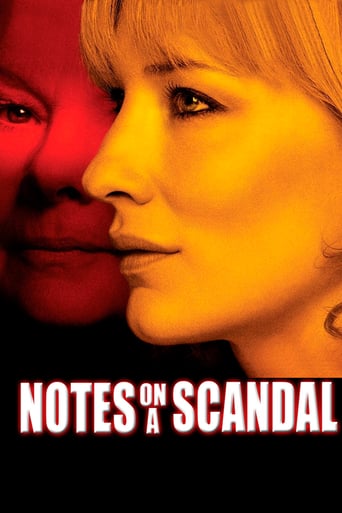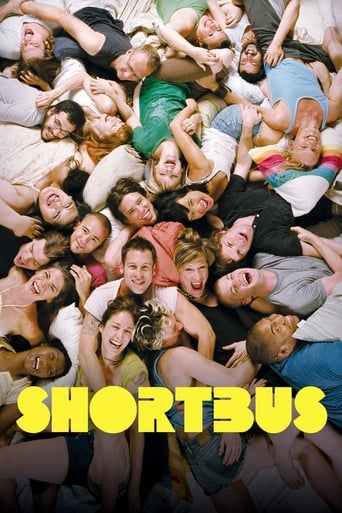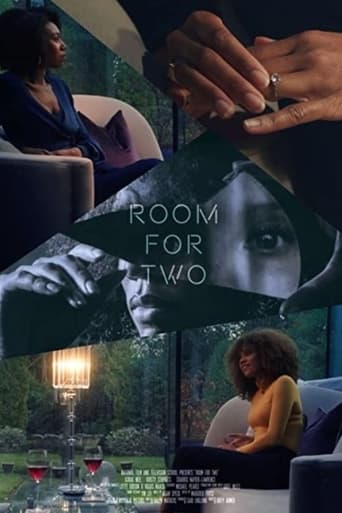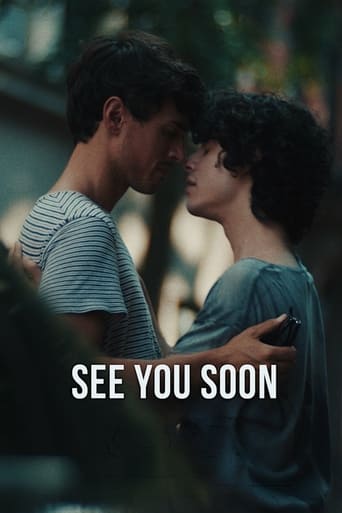The Children's Hour (1961)
A private school for young girls is scandalized when one spiteful student accuses the two young women who run the school of being in a relationship.
Watch Trailer
Cast
Similar titles

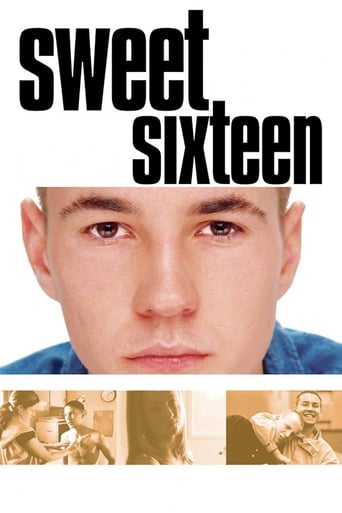
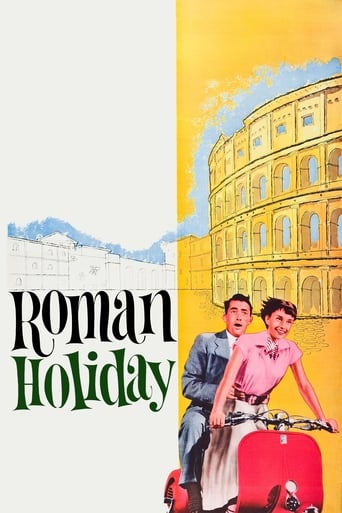
Reviews
Best movie of this year hands down!
Load of rubbish!!
I wanted to like it more than I actually did... But much of the humor totally escaped me and I walked out only mildly impressed.
what a terribly boring film. I'm sorry but this is absolutely not deserving of best picture and will be forgotten quickly. Entertaining and engaging cinema? No. Nothing performances with flat faces and mistaking silence for subtlety.
It took me a while to come to this film, as it's really not well-known or extensively talked about. I love old movies, and have for years, but my first exposure to this work didn't come until college, when I saw a scene from it performed in an acting class. I found the scene mesmerising, but didn't know that the play had been turned into a movie until a few years later, when I read about it in a biography of Audrey Hepburn. I was able to find it on a streaming service and immediately settled in to watch it. My thought having finally seen it is simply this; I cannot believe how little notice this movie seems to get. It's progressive, it's affecting, it's haunting. It's everything that makes a movie memorable. Audrey Hepburn, one of the most ethereal and chic actresses in history, is totally believable as the rather dowdy, down to earth, content co-headmistress at the boarding school where the story takes place. She's truly convincing as an every-woman. Just someone who is swept up in the gossip of a small town, but who, aside from that, would have a very ordinary life. Shirley MacLaine is just as believable as Martha, the more abrasive, restless of the two friends. She is able to subtly convey emotions like jealousy and anger, emotions that are all too easy to overplay on screen and stage. Both of them play their characters so well that it makes the relationship between them seem all the more authentic. You really do start to feel that these are two women who have been friends for years and have a close and comfortable repartee with one another. Of course, let's not overlook the supporting cast. The child actresses are all wonderful, not seeming to try too hard. Karen Balkin makes Mary, the girl who starts the rumours that drive the plot, all too easy to despise. The older actresses who play Martha's aunt and Mary's grandmother, also present a wonderful portrait of women from another generation, who are dealing with the issue at hand in the only ways they know how to. But the major standout in the supporting cast is James Garner as Karen's fiancé, Joe. I've seen his emotional depth in things like "The Notebook", but this role takes it to the next level. He really commits to what he is doing, and he just breaks your heart as you see him lose his veneer of calm collectedness when he realises that there are some things he simply can't control. The camera work is simple and basic, befitting a story like this one, and it's really the performers and story that make this a classic. It's a plot that isn't afraid to deal with a taboo issue in what was, for that time, a very frank way. It's one of those films that transports you, and it takes a couple of viewings of "Irma la Douce" or "Sabrina" afterward to remind you that these were characters, not real people. To me, the best films are the ones that create the world for you and flesh it out so well that it feels real, whether that be a fantastical world, or another version of the one we know. This film is a prime example of that being done right. It is still beautiful and relevant today, and should be counted as among the best performances of all involved.
It's always a shame when classic movies' breakthroughs have been so overdone that watching the original loses its meaning. I hope when you watch The Children's Hour you can appreciate how groundbreaking and scandalous it was in 1961.Based on a Lillian Hellman play (that's your cue to prepare yourself for a very heavy movie), Audrey Hepburn and Shirley MacLaine play two teachers at an all-girls school. One of the students is a terrible, pot-stirring brat, and she starts a rumor about her two teachers. She claims she saw them kissing, and the aftermath of her accusation wreaks havoc on the good friends' careers and lives.Both women give excellent, powerful performances, and there's so much to appreciate about the film. Obviously, moral discussions will abound afterwards, but what gets under my skin the most is the trouble-making child. So often, children and teenagers do damage without realizing the consequences. I hope someday young people will be less selfish and learn to see the bigger picture. Revenge, self-righteousness, and deception are terrible qualities. Hopefully The Children's Hour can teach a valuable lesson.
This was made in 1961? 1961! Really! Lies, lesbianism, suicide. And it was made in an era when television still insisted that Dick Van Dyke and Mary Tyler Moore had to sleep in twin beds - even though Rob and Laura Petrie (who they played on "The Dick Van Dyke Show") were married and had a kid! So my first reaction after having seen this movie is simply that it was well ahead of its time - such a mature and powerful movie for its day. The second thing that occurs to me is that it's still a relevant movie. The basic point of the movie is that a school girl's lies destroyed several people's lives. That can still happen. Some people work in fields which leave them very vulnerable to malicious accusations from people looking for revenge for one reason or another. In a society which tends to convict people long before they're put on trial and whether or not they're found guilty, that's a very real issue - and we all know that one story in a newspaper about an accusation becomes the truth for many people, no matter how things turn out in the end. So, yes, this is a powerful movie dealing with important and relevant issues and you cannot help but be fixated with it almost from the moment it starts.William Wyler (who directed this) and John Michael Hayes (who adapted the screenplay from a stage play written by Lillian Hellman) did a marvellous job of building the story. As an aside, I found it fascinating to discover that the stage play was actually based on a real incident involving two female teachers in Scotland in 1809! The movie begins slowly - almost lightly. It's a private boarding school for girls, run by two young women (Karen and Martha, played by Audrey Hepburn and Shirley MacLaine respectively) who have known each other and been close friends for many years. There's nothing particularly unusual about it. One of the students (Mary) is trouble - a chronic complainer and liar and bully. Every school has at least one of those. Again - that's not unusual. But after one of her lies, she's punished by Karen, and so she begins to spin her web of lies to gain revenge. She's clearly been reading a book that she's not supposed to be reading at her age that talks about subjects that weren't talked about at the time, and so she gains some ability to describe certain things that she claims to have seen to her grandmother. (That was a whispered conversation between the two that wasn't shared with the viewer, but it was pretty obvious.) Other girls have seen innocent things that can be twisted into something more and a comment overheard is taken out of context. Before you know it Mary has accused Karen and Martha of being lovers (the only thing that makes you realize this was made in the 60's is that the word "lesbian" is never, ever used.) The result is devastating. The story gets spread, parents take their children out of the school, effectively shutting it down, Karen's pending marriage to Joe (James Garner) is suddenly on the rocks and Karen and Martha are the centre of attention of the town - best friends who can't even take a walk together anymore because of what people will think and how people will look at them. All that was powerful enough in itself. But this movie leads up to a spectacular ending in essentially three parts.First is the confrontation between Mary and her grandmother, when Mary is finally forced to confess that everything was a lie and the town starts to realize that these women were innocent and that their lives and their school were destroyed for nothing. But there is something more. Tormented by the whole incident, Martha finally breaks down and confesses to Karen that - while she had never acted on it and nothing had ever happened between them - essentially there was truth to Mary's lie. Martha was in love with Karen. She didn't want to be, the fact that she was made her feel guilty and dirty, but she couldn't deny it anymore. And then, finally, Martha's suicide. Unable to live now that she has had to confront her feelings for Karen, Martha hangs herself. A tragic end to a truly tragic story - except ...There was one final scene. Many of those who had accused Karen and Martha and removed their children from their school came to the graveside service when Martha is being buried. Karen says a final goodbye to her friend - and then marches through the gathered people, her head held high. It seemed to me that she adopted that posture as much for Martha as for herself. To me, Karen had become something of a puzzle; an enigma. Once Martha confessed her love for Karen, not much was said about Karen's response. Clearly, she intended to continue the friendship. She wanted to go away with Martha and start over again. As best friends? As friends who were almost sisters? Or as lovers? I wasn't sure how Karen felt about Martha after Martha opened up to her. But it was clear that Karen intended the relationship to continue - and no matter what her feelings and intentions were that final scene makes a point - there's nothing here to be ashamed about. Karen won't be ashamed - and she won't let Martha die in shame. She walks out proudly and strongly, contemptuous of those gathered in the cemetery, not even giving them the satisfaction of a look in the eyes as she leaves. What a simple and yet powerful scene for Hepburn.I was blown away by this film that was so far ahead of its time, and that stands up very well even today. (10/10)
Shirley MacLaine and Audrey Hepburn did such a fabulous job on teaming up together in this film! My, there were such scene's that would honestly shock you, make you angry and even shed a tear a bit, it was so hard to watch at times! It was such a story that you wouldn't even know you were watching it and I'm not making it up here!It does make you realise how back then, there was not even a single word of lesbianism involved that time. It was such a hush hush world back then and I couldn't imagine how it felt for the girls in loving each other very deeply. It was too bad they didn't show of the two teachers kissing, it really was very backward in those days! It would've made a difference to Hollywood and open up a lot more but instead, everything shouldn't be talked about. It was such a disgrace then.I was so upset that Martha killed herself because of the fact, she couldn't have Karen and everyone just isolated them. It was just shocking and upsetting to watch towards the end. Audrey Hepburn with her beautiful black dress, walking away from the crowd at the funeral and grieving over her deceased lover..
